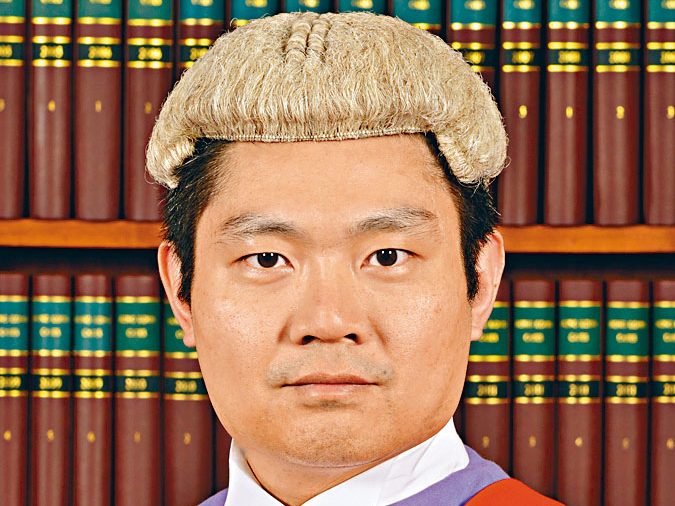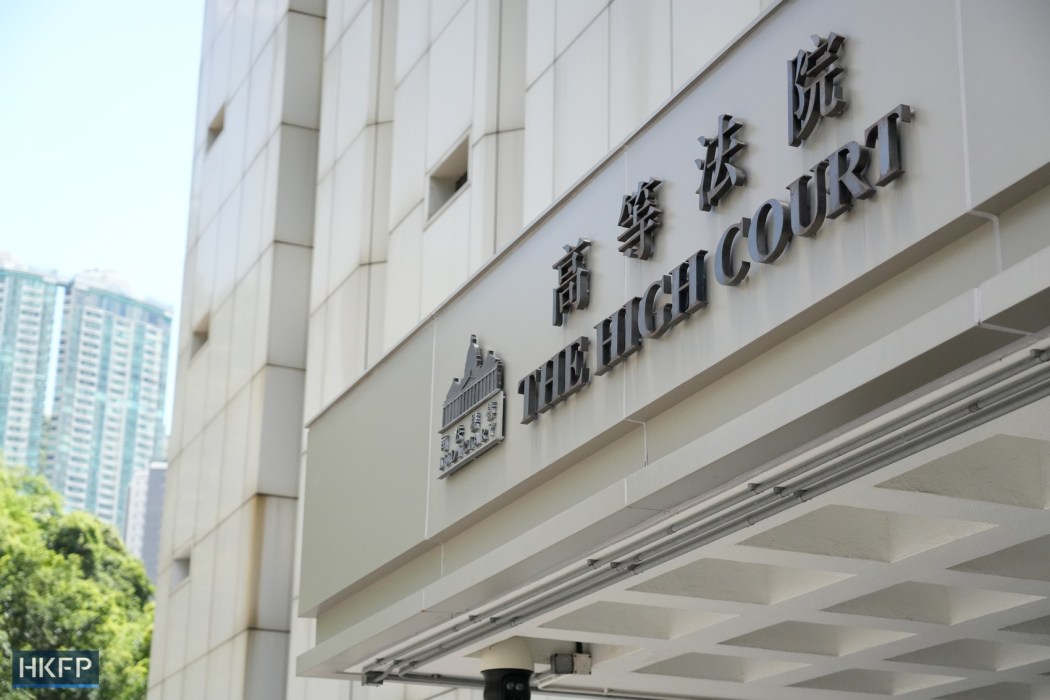A barrister detained for months on a national security charge asked Hong Kong’s High Court to open committal proceedings in her case to the media, but a government lawyer objected on the grounds that this may jeopardise a fair trial.
Chow Hang-tung, former vice-chair of the Hong Kong Alliance in Support of Patriotic Democratic Movements of China, appeared in front of Alex Lee, one of the city’s handpicked national security judges, at the High Court on Tuesday. She is appealing against a magistrate’s decision to reject her application to lift reporting restrictions.

Chow in May filed an application for leave to appeal against Principal Magistrate Peter Law’s refusal to lift reporting restrictions on committal proceedings in the security case, in which Chow, the Alliance, and two of its other former leaders Lee Cheuk-yan and Albert Ho, are accused of incitement to subversion.
The Alliance for decades organised a mass vigil to commemorate victims of the 1989 Tiananmen crackdown in Beijing, but has now disbanded.
Law ruled on April 25 that if restrictions were lifted, it would lead to “widespread critical discussion or even attacks” because the entire proceedings could be reported.
The magistrate said spectators at court proceedings often disregarded discipline, and would cause psychological pressure for witnesses testifying in court in the future. Some witnesses might be deterred from testifying because of the pressure.
In committal proceedings, a magistrate determines whether there is enough evidence for a case to be transferred to a higher court for trial or sentence. Under reporting restrictions which are normally in force at such proceedings, reports are limited to the name of the defendants, magistrates, and lawyers, the alleged offence, the court’s decision, whether legal aid was granted, and future court dates.
Risks to a fair trial
Senior counsel Johnny Ma, representing the secretary for justice, argued in court on Tuesday that the magistrate’s reasoning about possible public reaction was valid, and that lifting reporting restrictions might pose risks to a fair trial.

Judge Lee questioned whether such an argument could be used to ban all court reporting. The judge also asked whether the magistrate had considered other options, such as allowing witnesses to remain anonymous.
Ma argued that the court must ensure a fair trial for both the defendant and the prosecution, and that even if anonymity orders were in place, the proceedings would still “attract commentary from the public.”
The judge questioned how public commentary would affect the integrity of the trial, and said the prosecution could always ask for a trial by a panel of three judges. Lee also asked whether the magistrate had “taken into account relevant considerations.”
Not mandatory
The government lawyer also argued that, despite the word “shall” in section 87A of the Magistrates Ordinance, it was not mandatory for the magistrate to lift reporting restrictions if an accused person requested this.

The section states that “a magistrate shall, on an application for the purpose made with reference to any committal proceedings by the accused or one of the accused,” lift restrictions on the reporting of the proceedings.
‘Misguided and wrong in law’
Senior counsel Philip Dykes, representing Chow, argued that the magistrate “completely overlooked” the principle of open justice, and his decision was “misguided and wrong in law.”
Dykes cited section 122 of the Criminal Procedure Ordinance, and said that while the court had the power to exclude the public from a hearing, anyone representing a newspaper or news agency cannot be excluded.

The judge said he needed some time to reach a decision and would announce it on or before September 1, a day before Chow’s next scheduled court appearance.
Chow was remanded in custody in September last year. She has since been sentenced to prison over two separate charges linked to two banned Tiananmen candlelight vigils.
The Alliance, which disbanded in September last year, organised Hong Kong’s annual vigils which attracted tens of thousands. Hundreds, perhaps thousands, died when the People’s Liberation Army cracked down on protesters in Beijing on June 4, 1989.
Support HKFP | Policies & Ethics | Error/typo? | Contact Us | Newsletter | Transparency & Annual Report | Apps
Help safeguard press freedom & keep HKFP free for all readers by supporting our team
























